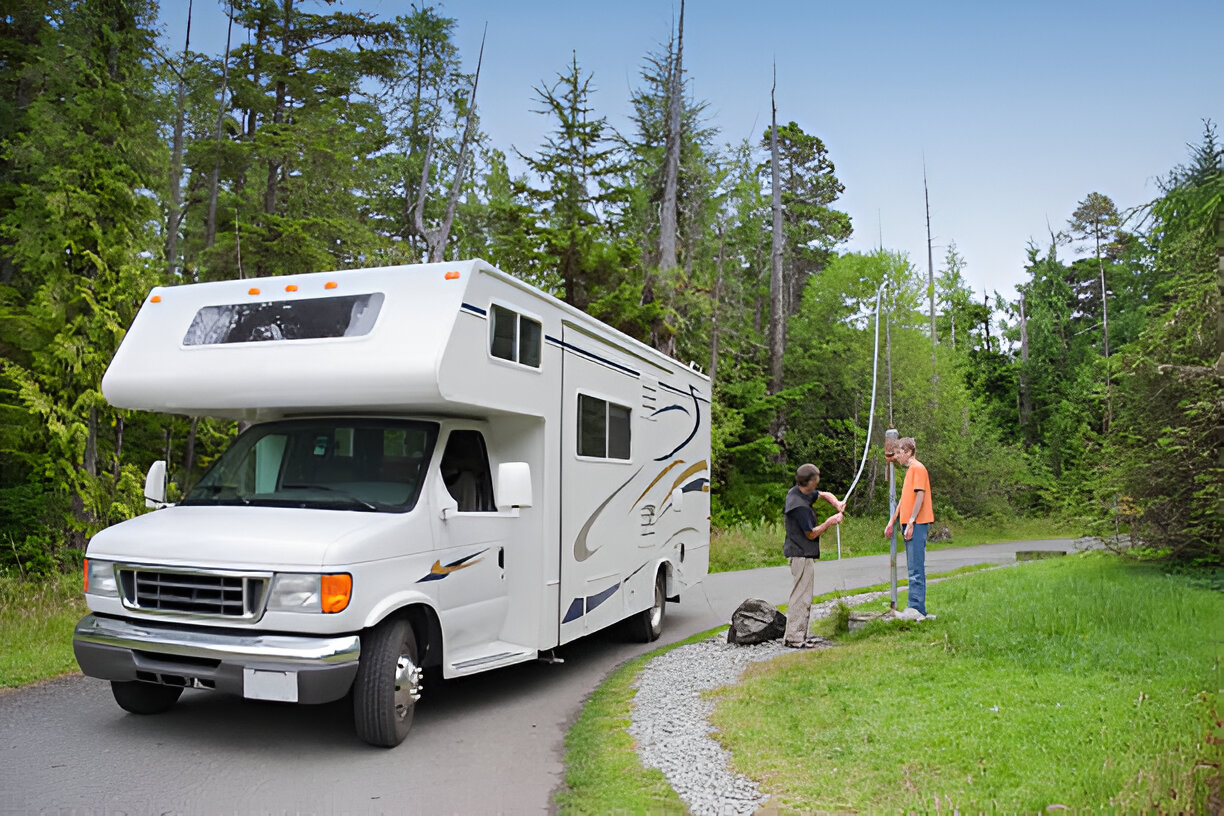Planning a road trip in any recreational vehicle (RV) promises exciting adventures. For this, you must ensure your vehicle is ready to hit the road in all situations. This article will help you find out how to perform a comprehensive RV inspection before starting your journey. Using an RV inspection checklist will help keep your trip more than ever easy and stress-free.
Why an RV Inspection Matters
Road trips can strain your RV if it’s not roadworthy. Ignoring small issues could lead to larger problems later. A thorough inspection ensures you avoid breakdowns. It keeps you safe and saves repair costs. Regular RV checkups also extend the lifespan of your vehicle and improve overall performance. By investing time in inspections, you prevent setbacks and ensure maximum enjoyment on your road trip.
Start with the Exterior
Inspect the exterior for visible damage or wear. Look for cracks, dents, or signs of rust. Clean windows and test seals to ensure they’re intact. Examine roof seams and edges for leaks. Pay special attention to signs of water intrusion. Proper sealing prevents further damage. Also, inspect the awnings and slide-out seals for wear. Ensure these components open and close smoothly without resistance. These external checks safeguard against environmental damage.
Tires and Wheels
Check all tires for proper inflation. Use a pressure gauge to confirm that the levels match the guidelines. Examine treads for wear and look for visible bulges. Don’t forget the spare tire. Test wheel alignment to avoid uneven tire wear during the trip. Rotate the tires if you’ve traveled extensively. Maintaining tire health ensures a smoother ride and minimizes the risks of blowouts. It’s vital for both safety and fuel efficiency.
Electrical Systems
Verify that all external lights work. Headlights, brake lights, and turn signals are vital. Check interior fixtures like fans and outlets. Test the battery for power and charge it fully before travel. Ensure all fuses and connections are secure. Confirm your inverter and generator operate smoothly. An RV’s electrical setup should also support essential appliances during trips. These tests guarantee you have power and illumination when needed most.
Water and Plumbing System
Test the water pump to confirm smooth flow. Inspect pipes and fixtures for leaks or blockages. Make sure water storage tanks, including fresh and waste tanks, are clean. Test faucets, showerheads, and sinks for functionality. Ensure toilet seals are tight and functioning. Verify hoses and valves for kinks or breaks to prevent any accidents. Having a reliable water system improves convenience and hygiene throughout your journey.
RV Inspection Checklist
Comprehensive Benefits
An RV inspection checklist simplifies preparing your vehicle. It ensures every aspect is reviewed. Include major areas like structure, systems, and utilities. It also keeps track of minor repairs or items to replace. Organized records prevent overlooked tasks, ensuring optimal performance. By documenting steps taken, you streamline your preparation process and minimize surprises.
Key Elements
- Exterior Examination: Roof, seals, and body condition.
- Interior Checks: Furniture, appliances, and safety equipment.
- Mechanical Systems: Engine, transmission, and brakes.
- Utilities: Electrical setup, water flow, and plumbing integrity.
Using a checklist provides structure and reduces the risk of missing critical issues.
Interior Inspection
Inspect for damages inside, including furniture or appliances. Check the refrigerator and microwave. Look for signs of pests in hidden spaces. Test smoke detectors and fire extinguishers for safety. Examine upholstery and flooring for wear or stains. Ensure curtains, blinds, and storage compartments are secure. These steps enhance comfort and safety, creating a homely environment during the trip. Regular cleaning also prevents allergen buildup and keeps the space welcoming.
Engine and Mechanicals
Open the hood and check engine oil levels. Inspect belts, hoses, and fluid levels for wear. Don’t skip the brakes and transmission. A trusted mechanic can assist if you spot anything unusual. Consider testing the alternator and coolant system to prevent overheating. Inspecting these critical components ensures your RV runs smoothly for long trips. Keeping spare belts or essential tools on hand is also wise for emergencies.
HVAC Systems
Test heating and air conditioning units to confirm proper function. Clean air filters before your trip. Inspect vent covers and ducts for dust or debris. Verify thermostat settings for accurate temperature control. Regular maintenance of the HVAC system guarantees comfort, regardless of weather conditions. By ensuring these systems are in optimal condition, you create a relaxing and enjoyable environment inside the RV.
Safety Essentials
Verify first aid kits, road flares, and toolkits are stocked. Carry a fire extinguisher and emergency contact numbers. Check maps or navigation systems for accuracy. Safety preparations ensure confidence on the road. Always include weather-appropriate gear like blankets, flashlights, and a weather radio. Being prepared for emergencies ensures peace of mind and reduces travel worries.
Pre-Departure Test Run
After the inspection, take your RV on a short test drive. Observe how it handles corners, stops, and climbs. Listen for unusual noises or performance hiccups. A short trip helps uncover missed issues. Perform additional checks on navigation devices and Wi-Fi boosters during the test. Testing systems under realistic conditions ensure smooth performance once your trip begins.
Keep Records Handy
Document your inspection details, including maintenance history and needed repairs. Carry these records during trips. It’s helpful for resolving issues while traveling or communicating with service teams. Organized records also help when selling your RV in the future. Maintaining accurate logs showcases proper care and increases vehicle value.
Final Words
Performing a thorough inspection prevents avoidable hassles. With a reliable RV Inspection Checklist, you’ll ensure peace of mind on your adventure. Take the time to prepare, and enjoy your road trip with no interruptions. This preparation ensures your vehicle stays reliable and every journey becomes a cherished memory. Now call us to get a full-stack RV solution.

